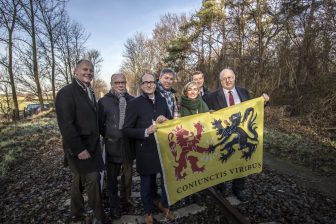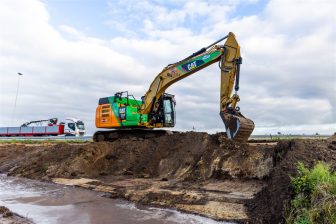ADB calls for acceleration Cooperation Southeast Asia
MANILA, PHILIPPINES – Asian Development Bank (ADB) President Haruhiko Kuroda 2007-11-19 called for increasing subregional cooperation in Southeast Asia as economic interests in the region converge.
Mr. Kuroda’s comments came during his participation in the leaders’ meetings for the Brunei Darussalam, Indonesia, Malaysia and Philippines – East ASEAN Growth Area (BIMP-EAGA) and the Indonesia, Malaysia and Thailand – Growth Triangle (IMT-GT).
During the 4th BIMP-EAGA Summit, Mr. Kuroda noted that the four countries signed key subregional transport agreements earlier this year granting additional traffic rights to major international airports, facilitating the cross-border movement of buses and coaches and strengthening sea route cooperation.
“Promoting the seamless flow of trade and tourism across the subregion’s borders is a major step in economic integration. Accelerating this flow will bring significant economic benefits – sooner – to all BIMP-EAGA countries,” Mr. Kuroda said.
In a joint statement, the four leaders welcomed ADB’s initiative in establishing a BIMP-EAGA environment program in the core of their Coral Triangle Initiative, aimed at enhancing the exceptional land and marine biodiversity of the subregion. A technical assistance grant of $1.5 million is being processed to start off the program.
BIMP-EAGA was launched in 1995 as a key strategy of the group for addressing the social and economic development of their less-developed and more remote territories. Mr. Kuroda noted that BIMP-EAGA is now shifting from planning to implementing projects.
BIMP-EAGA has a combined population of 57.5 million. It consists of the entire sultanate of Brunei Darussalam; Papua, Maluku, Kalimantan and Sulawesi in Indonesia; Sabah, Sarawak and Labuan in Malaysia; and Mindanao and Palawan in the Philippines.
The 3rd IMT-GT Summit endorsed the participation of six new provinces of southern Thailand into the cooperation initiative, which has substantially expanded the scope of its cooperation since its formation in 1993.
IMT-GT is now composed of 32 states and provinces from the entire island of Sumatra, all but two states of Peninsular Malaysia, and all fourteen provinces in southern Thailand. The combined population of IMT-GT areas is now in excess of 70 million.
Congratulating IMT-GT for its achievements during the year, including creation of a fully funded permanent secretariat in Selangor, Mr. Kuroda called for further enhancement of connectivity and trade facilitation. “Targeted reductions in transport and logistics costs along the identified connectivity corridors would substantially reduce the costs of moving goods and people across the Straits of Melaka.”
To support increased subregional cooperation in IMT-GT, Mr. Kuroda said ADB is willing to significantly increase regional technical assistance. ADB support to IMT-GT is focused on enhancing regional economic connectivity corridors, trade facilitation, providing institutional and capacity development, and promoting local government participation.
U las zojuist één van de gratis premium artikelen
Onbeperkt lezen? Profiteer nu van de introductieaanbieding voor € 10,- per maand.
Bent u al abonnee?



